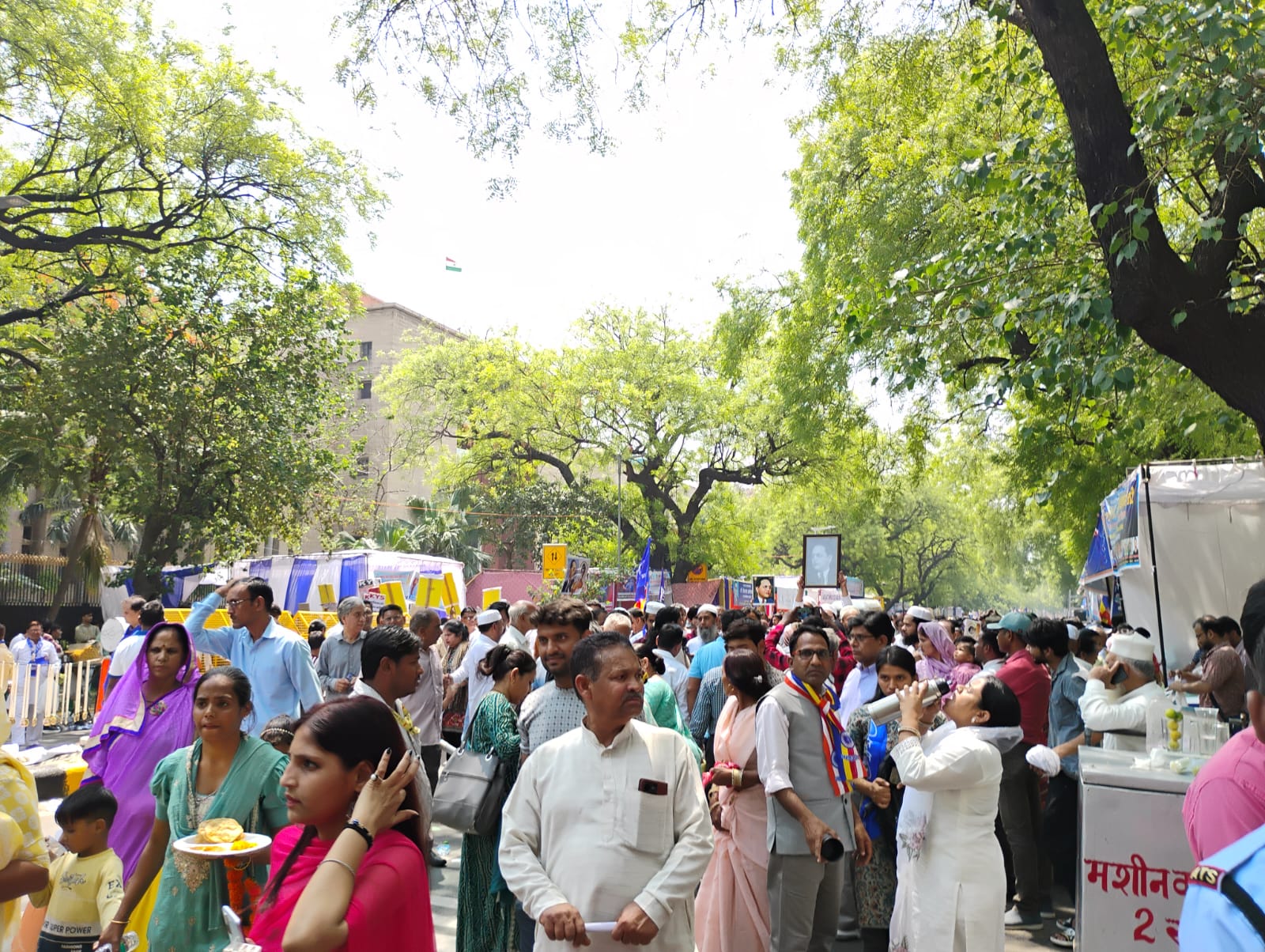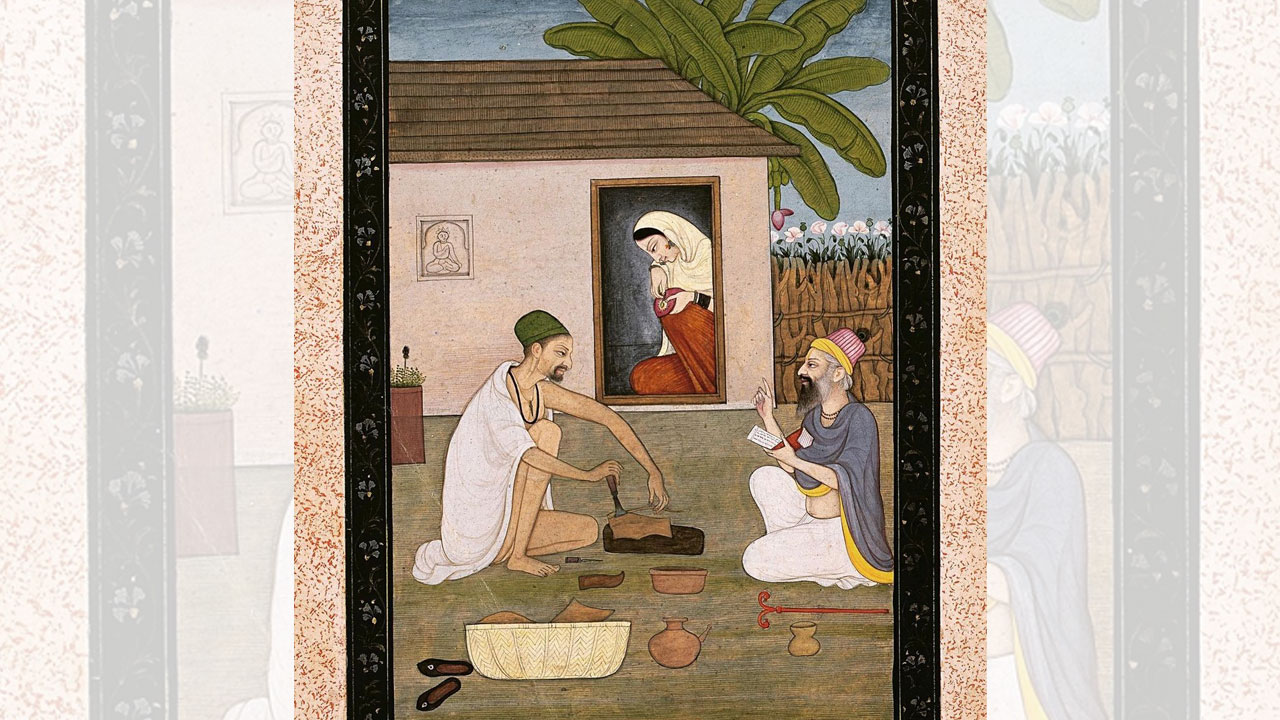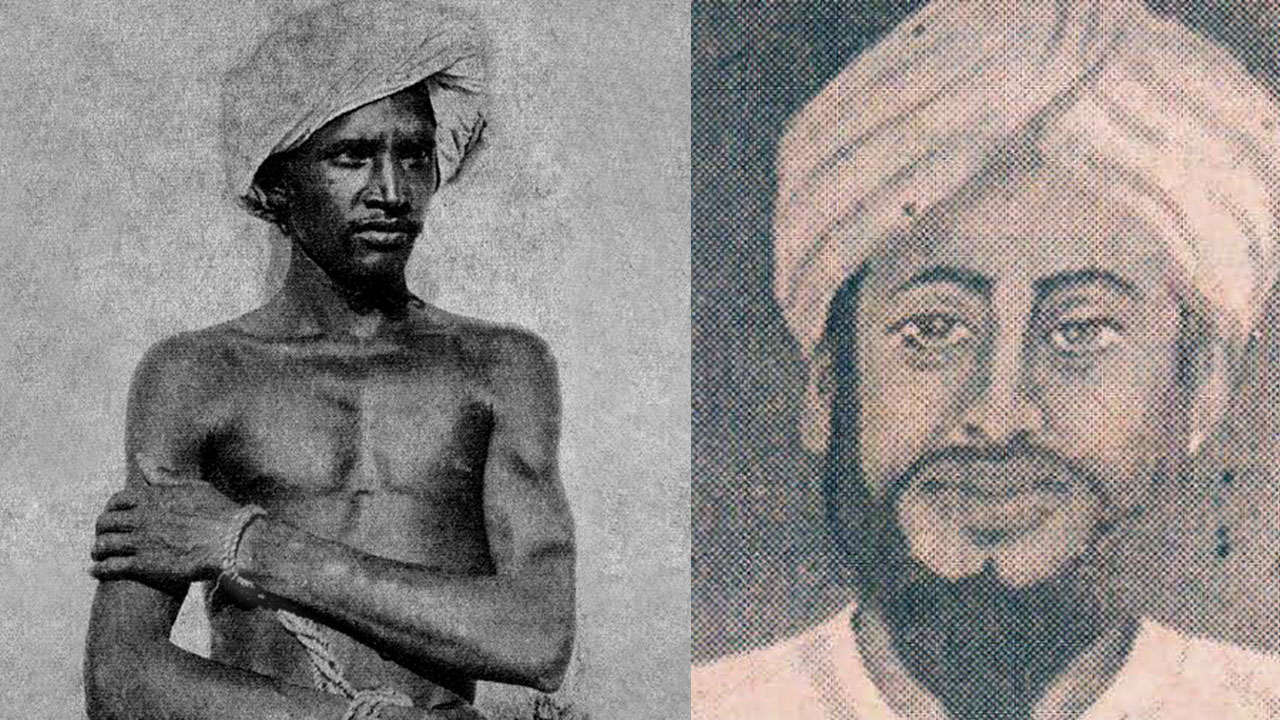I got to know Bhikhari Thakur the ‘nachaniya’ (dancer) first. Those were my childhood days. It was 1954-55 or thereabouts, when his dance troupe came to Kulti, an industrial township in West Bengal, where I lived.
His popularity was at its zenith then. LP records of Thakur’s Videsiya were played at my place and my uncle had named his two sons ‘Batohi’ and ‘Videsi’. Thakur came to my town again a few years later. But by then, I had developed a typical prejudice against the adjective ‘nachaniya’ and lost interest in him. Then, in 1998, I was again drawn to him when I came in close contact with people’s movements. I felt that these heroes of the common man were more important than the traditional heroes of today and those from history.
I was quite close to Rajendra Yadav. He began goading me to write on Thakur. But I was more interested in Mahendra Misir, who was giving voice to the ‘girmitiya’ (indentured) labourers.
 Subsequently, I began researching and studying this great man, who had come to my doorstep 45 years ago but then had died in 1971. I read almost all his writings. As far as possible, I also visited the places where he had been and met people close to him. I went to the rural hinterlands of Kutubpur, Chhapra, Balia, Ara and Patna, as well as Kolkata and the colliery areas. As I delved deeper and deeper, a new world opened up before me. I was angry with myself for having shown disdain for this unpolished gem of a person and for considering him a mere ‘nachaniya’.
Subsequently, I began researching and studying this great man, who had come to my doorstep 45 years ago but then had died in 1971. I read almost all his writings. As far as possible, I also visited the places where he had been and met people close to him. I went to the rural hinterlands of Kutubpur, Chhapra, Balia, Ara and Patna, as well as Kolkata and the colliery areas. As I delved deeper and deeper, a new world opened up before me. I was angry with myself for having shown disdain for this unpolished gem of a person and for considering him a mere ‘nachaniya’.
Despite being born in the barber caste, receiving little education, and struggling with poverty, humiliation and apathy all his life, the way he managed to build his personality filled me with curiosity and a great respect for him. Some members of the upper castes respected him while others ridiculed him, calling him ‘bhikhariya’ (beggar). His son Shilanath also tried to hide some bitter truths. But I ploughed through, working diligently to join the dots and ultimately achieved what I had set out for. The ‘negative’ became clearer and clearer and one day, I could see Thakur’s face in its complete clarity.
He suffered from the very beginning of his life. His father Dalsigar Thakur sent him to school but even after a year’s study he could not learn to write ‘Ram Gati, Dehoon Sumati’. And how could he have? The teachers did not teach him. They only made him work as a barber. He was taken out of school and pushed into grazing cattle. He was still illiterate, and he somehow had to learn to read. After all, he needed to read invites to marriages. So approached his friend Bhagwan Sav for help. He married thrice but in the end, he did not have a partner.
I have described these gloomy years of his life in Sutradhar. When he was 30, he had to leave for ‘pardes’ (foreign land). ‘Pardes’ then meant Kolkata. His uncle, who was in Medinipur, got him a barber’s job at Khadagpur. He read Ramayana in the nights there. He went to Jagannathpuri, where he saw the ‘yatra’, before returning to Kolkata and subsequently to his village. His neighbour Ramanand Singh was a landlord. Despite being a Rajput, he encouraged Thakur from time to time and inspired him to start writing.
Thakur was not the one to tread on the beaten path. He was a revolutionary. He did not go for the traditional, contemporary drama. His plays, which he called ‘nacch’ or ‘tamasa’, depicted the pains and pleasures and the hopes and aspirations of the people at the very bottom of the social hierarchy. Birha Bhara, written on the lines of Tulsi’s Ramcharitmanas, is a musical dialogue of a washerman and his wife. Thakur never wrote on the popular folk heroes. Despite the insistence of his friend Ramanand Singh he did not write on Kunwar Singh. He used to say, “Scholars and knowledgeable people will write about kings, emperors and big men. Let me write about people like me”. Thakur hated the upper castes as much as they hated him – not the people but their casteist ego. Despite all his extraordinary skills, his felt hurt if somebody addressed him as ‘Re’ or as ‘Bhikhariya’. “Sabse kathin jaati apmana” (Humiliation of one’s caste is the most difficult to stomach), he struck back in Nai Bahar.
His pen rebelled against the social heritage that deprived humans of humanity. Once he had earned a little money and fame, he found acceptance in his family as well as society. Still, the upper castes continued to reject him, to treat him with disdain. They did not like Thakur depicting the pain of the women in his writings. In those days, the system of selling off the daughters was prevalent among the upper castes. Poor parents, who could not arrange a dowry for their daughters, sold them off as wives to old or unsuitable men. Thakur wrote a heart-rending play Beti Viyog to protest against this practice. The play, popularly known as Beti Bechwa (Selling Daughters) had such an impact in the Bhojpuri-speaking region that at many places girls refused to get married and at other places the villagers drove away the grooms. In 1964, the play was being staged in Kumardhuvi area of Dhanbad district. During one of the shows, more than 500 labourers of Hazaribagh district broke down. They marched to a nearby Shiv temple and took an oath that they would never sell their daughters. This incident took place at Layakdeeh Colliery.
Through his ‘nach’, Thakur gave voice to the pain and misery of the migrant labourers, daughters, widows, old men and women and Dalits and Backwards. He did this risking physical attacks and persecution.
People went to see his plays ignoring the fiats of their families. Besides Nai Bahar and Beti Viyog, Bhikhari also tried to suggest a comprehensive solution to the caste war in Hindu society through his Chauvaran Padvi. While the Hindi-speaking belt never witnessed a renaissance, whatever little happened in that direction was the contribution of Bhikhari Thakur and others like him, including Rasul Hajjam of Siwan, Fida Hussain Narsi of Moradabad and Pandit Radheshyam of Bareli. They all were playwrights who dealt with social issues.
In that era of transition and exploration, there was a surge in rural awareness. The literature and art that was the harbinger of this awareness was based on themes that were never even considered worth a glance by the Hindi littérateurs. These included the tales of valour from the 1857 revolt, the poor condition of Indians and the agony of the indentured labourers. Bhikhari Thakur was the most loved and the brightest star of this era. Even those around him became legends. And all of them came from lower castes. They rose above their hellish existence and innovated with music, songs and dance. His life is an example of how a person can rise above his self. Thakur busted many myths of the world of literature, culture and art. He established that a hero could be from anywhere – even from the bottom of society. And in fact, only such a hero can understand and identify with the pains and disappointments of the people.
This write-up is based on a conversation of FORWARD Press chief correspondent Amrendra Yadav with Sanjeev, the writer of Sutradhar, a widely acclaimed novel on the life of Bhikhari Thakur.
Forward Press also publishes books on Bahujan issues. Forward Press Books sheds light on the widespread problems as well as the finer aspects of the Bahujan (Dalit, OBC, Adivasi, Nomadic, Pasmanda) community’s literature, culture, society and culture. Contact us for a list of FP Books’ titles and to order. Mobile: +919968527911, Email: info@forwardmagazine.in)





